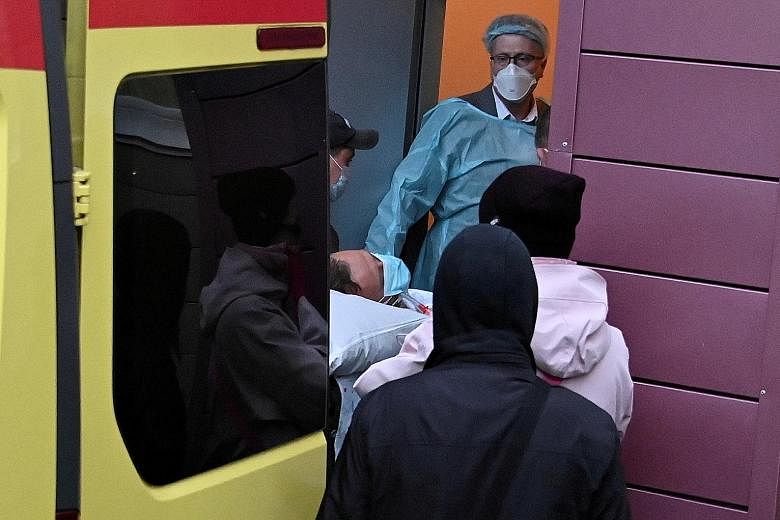MOSCOW • The Kremlin has said that it hoped opposition politician Alexei Navalny's illness would not damage Russia's ties with the West and that it was keen to find out why he fell ill.
Mr Navalny is in a medically induced coma in a Berlin hospital where he was airlifted on Saturday after collapsing during a flight back in his homeland.
The German clinic said its initial medical examination pointed to poisoning, though Russian doctors who had treated Mr Navalny in a Siberian hospital have contradicted that diagnosis.
Germany, the United States and other countries have called on Russia to investigate the circumstances that led to Mr Navalny's illness but Kremlin spokesman Dmitry Peskov told reporters the diagnosis so far was inconclusive.
Replying to a question on the possible worsening of relations between Moscow and the West on Wednesday, Mr Peskov said: "Of course we would not like this (to happen), that's the first thing. Secondly, there is no reason for that."
Russian police yesterday announced that they had begun a preliminary examination of Mr Navalny's illness.
Transport police in Siberia said they have started "a pre-investigation check" into what led to his hospitalisation in the city of Omsk to establish "all the circumstances" and decide whether to open a criminal probe.
Russian President Vladimir Putin held a phone call with Italian Prime Minister Giuseppe Conte on Wednesday in which they discussed Mr Navalny's health.
"The Russian side stressed the inadmissibility of hasty and unfounded accusations in this regard," the Kremlin said in a statement about the call.
It said Moscow wanted the circumstances surrounding Mr Navalny's condition to come to light.
Mr Peskov's comments and Mr Putin's phone call come a day after the Speaker of Russia's lower house of Parliament said a committee would launch an inquiry to determine whether foreign forces had played a hand in Mr Navalny's illness in order to fuel tensions in Russia.
Earlier, a senior ally of Mr Navalny said he believed only Mr Putin could have authorised the suspected poisoning of the outspoken Kremlin critic.
Mr Ivan Zhdanov, the director of Mr Navalny's Anti-Corruption Foundation (FBK), did not provide any evidence for the claim. "He (Putin) hates what the FBK does too much, exposing him and his entourage," Mr Zhdanov said.
The Kremlin has dismissed as "hot air" and untrue any suggestion Mr Putin was somehow involved in Mr Navalny's alleged poisoning.
REUTERS, AGENCE FRANCE-PRESSE

